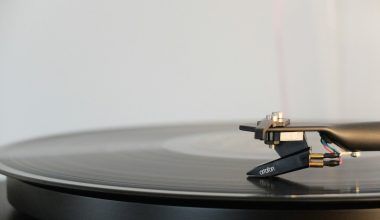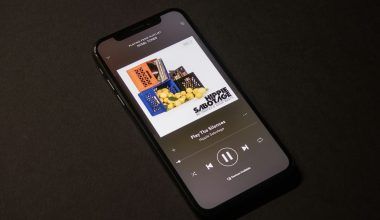Why Selling Your Songs Matters
Have you ever dreamed of hearing your song on the radio, in a movie, or even sung by your favorite artist? For many songwriters, this dream can become a reality by learning how to sell songs to music publishers. music publishing job roles Publishers can take your songs to places you can’t reach alone—like TV shows, commercials, or big artists looking for their next hit.music.
Selling your songs isn’t just about making money. It’s about getting your music heard and recognized by a larger audience. This guide will break the process into simple steps that are easy to follow, even if you’re just starting.
What Is Music Publishing?
Music publishing is the process of managing and promoting your songs to make money. A music publisher helps you by licensing your songs, managing royalties, and protecting your copyrights. music publishing job roles They work as your business partner, helping you earn whenever your music is used.
How Does Music Publishing Work?
Here’s a quick explanation:
- You Write a Song: This is your creative work.
- The Publisher Promotes It: They find opportunities for your song to be used in movies, ads, or by other artists.
- You Earn Royalties: Every time your song is used, you get paid.
If you’re serious about songwriting, understanding how publishers work is an important step toward success.
Why Work With a Music Publisher?
Working with a music publisher makes it easier to:
- Get Discovered: Publishers have industry connections that you might not have.
- Earn Money: They ensure you’re paid fairly for your work.
- Protect Your Rights: Publishers make sure your music isn’t stolen or misused.
For many songwriters, selling songs to music publishers is a stepping stone to a long and successful career.
How to Sell Songs to Music Publishers: The Basics
Here are the key steps to selling your songs:
1. Register Your Songs
Before you pitch your music to anyone, make sure your songs are registered with a Performing Rights Organization (PRO) like ASCAP, BMI, or PRS. This ensures that you own the copyright and get paid when your song is used.
2. Create a Strong Portfolio
Your portfolio is like a resume for songwriters. It should include:
- 5 to 10 well-recorded demos.
- A short bio about your music.
- Lyrics for each song.
Make sure your demos are clean and professional. A poorly recorded demo might make publishers overlook a great song.
3. Research Music Publishers
Not all publishers are the same. Some focus on pop music, while others specialize in film scores or commercials. Research publishers that match your style.
4. Submit Your Songs
Follow the publisher’s submission guidelines. Some accept email submissions, while others prefer physical CDs or personal meetings.
5. Be Patient and Persistent
Selling songs can take time. Keep improving your portfolio and submitting your work to new publishers.
What Do Music Publishers Look For?
Publishers are looking for songs that:
- Have Commercial Appeal: Catchy hooks, relatable lyrics, and a strong melody are essential.
- Fit Their Market: If they focus on pop, they’re not likely to accept a heavy metal song.
- Show Potential: Even if your demo isn’t perfect, a great song will shine through.
How to Make Your Songs Stand Out
To grab a publisher’s attention, follow these tips:
1. Write Catchy Lyrics
Your lyrics should be easy to remember and emotionally impactful. Think of songs like “Someone Like You” by Adele—simple yet powerful.
2. Focus on Melody
A good melody can make or break a song. Even without lyrics, your melody should be engaging.
3. Invest in Quality
High-quality demos show you’re serious about your craft. Use AI mastering tools or work with a professional producer to enhance your recordings.
Types of Deals You Can Get
When selling songs to publishers, you might encounter these types of deals:
1. Single-Song Agreement
You sell the rights to one song. The publisher promotes it and earns a cut of the royalties.
2. Exclusive Songwriter Agreement
You agree to write songs exclusively for one publisher for a set time. In return, they handle all promotion and licensing.
3. Co-Publishing Agreement
You and the publisher share ownership of the song, and the royalties are split.
Each deal has its benefits, so choose the one that suits your goals.
Where to Find Music Publishers
Here are some ways to connect with publishers:
- Online Databases: Sites like Songwriter Universe and Music Row provide directories of publishers.
- Networking Events: Attend songwriting workshops or music conferences to meet publishers in person.
- Social Media: Follow publishers on LinkedIn or Twitter and engage with their content.
- Referrals: Ask fellow songwriters for recommendations or introductions.
Common Mistakes to Avoid
Avoid these pitfalls when pitching your songs:
- Sending Unfinished Songs: Always send polished, complete tracks.
- Ignoring Submission Guidelines: Follow the publisher’s rules closely.
- Skipping Registration: Unregistered songs can lead to legal issues.
Real-Life Stories of Songwriters Who Made It Big
Many successful songwriters started by selling their songs to publishers. For example:
- Max Martin, one of the biggest hitmakers, built his career through strategic publishing deals.
- Ed Sheeran worked with publishers early in his career to place his songs with artists like One Direction.
These stories show that selling songs to music publishers can lead to incredible opportunities.
Tools and Resources for Songwriters
Here are some tools to make your journey easier:
- Songwriting Software: Tools like MasterWriter help organize ideas.
- AI Mastering: Services like LANDR polish your demos to a professional standard.
- Performing Rights Organizations: Join ASCAP or BMI to manage your royalties.
How to Build Long-Term Relationships With Publishers
Once you’ve sold a song, focus on building a strong relationship with your publisher. Here’s how:
- Communicate Clearly: Keep them updated on your progress.
- Deliver Quality Work: Always strive to improve your songwriting.
- Be Professional: Treat your publisher as a partner in your career.
Conclusion: Start Selling Your Songs Today
Selling your songs to music publishers can open doors to a successful music career. By following the steps in this guide, you’ll be better prepared to navigate the industry and make the most of your talent. music publishing job roles Remember, persistence is key—keep improving your craft, networking, and submitting your music.
With dedication and effort, you’ll find the right publisher who believes in your songs as much as you do.
Related Articles:
For further reading, explore these related articles:
- The Ultimate Guide to a Distribution Deal in Music: Take Your Career to the Next Level
- Best Digital Music Distribution Service: A Comprehensive Guide
- Top Free Music Distribution Platforms for Independent Artists
For additional resources on music marketing and distribution, visit Deliver My Tune.






